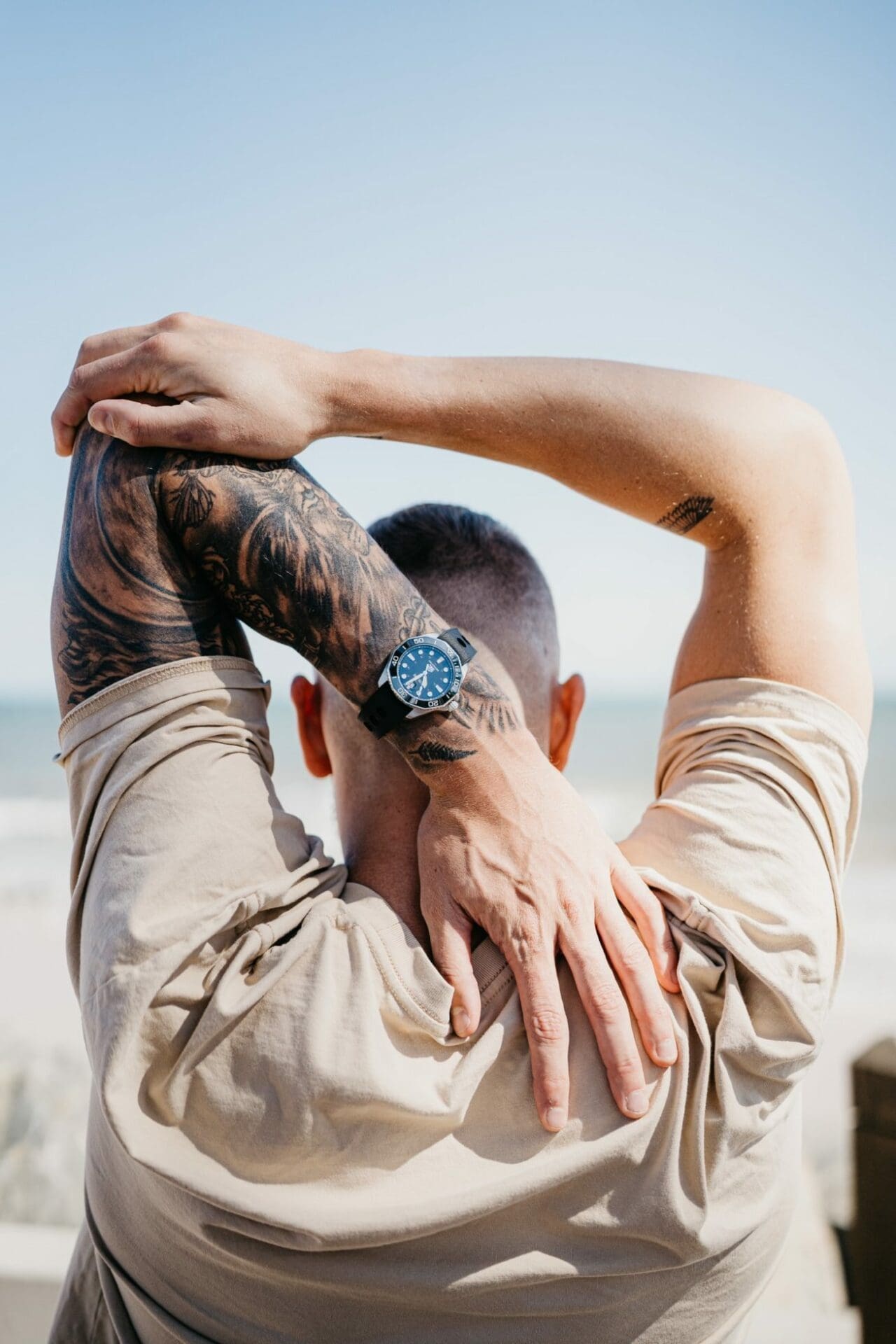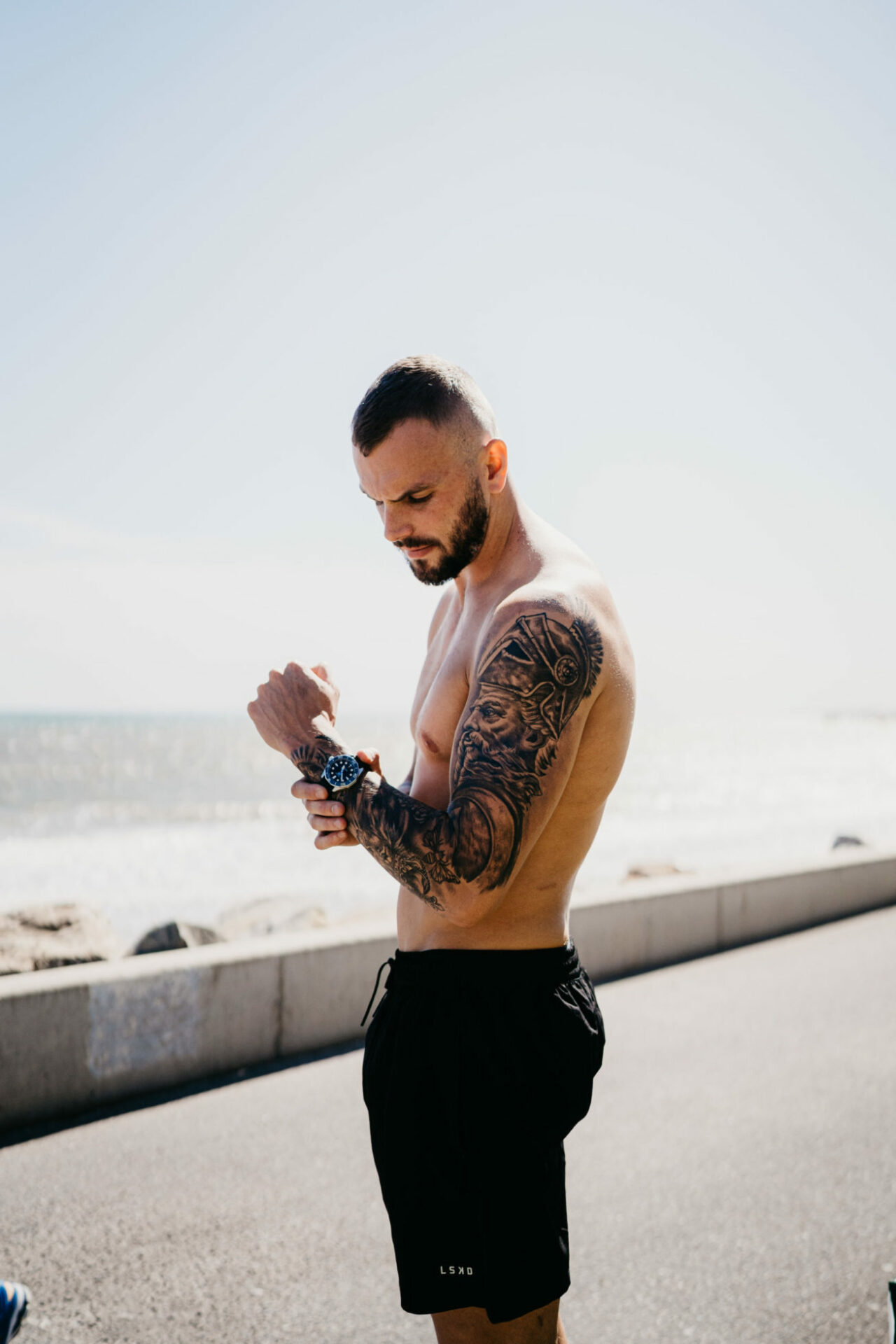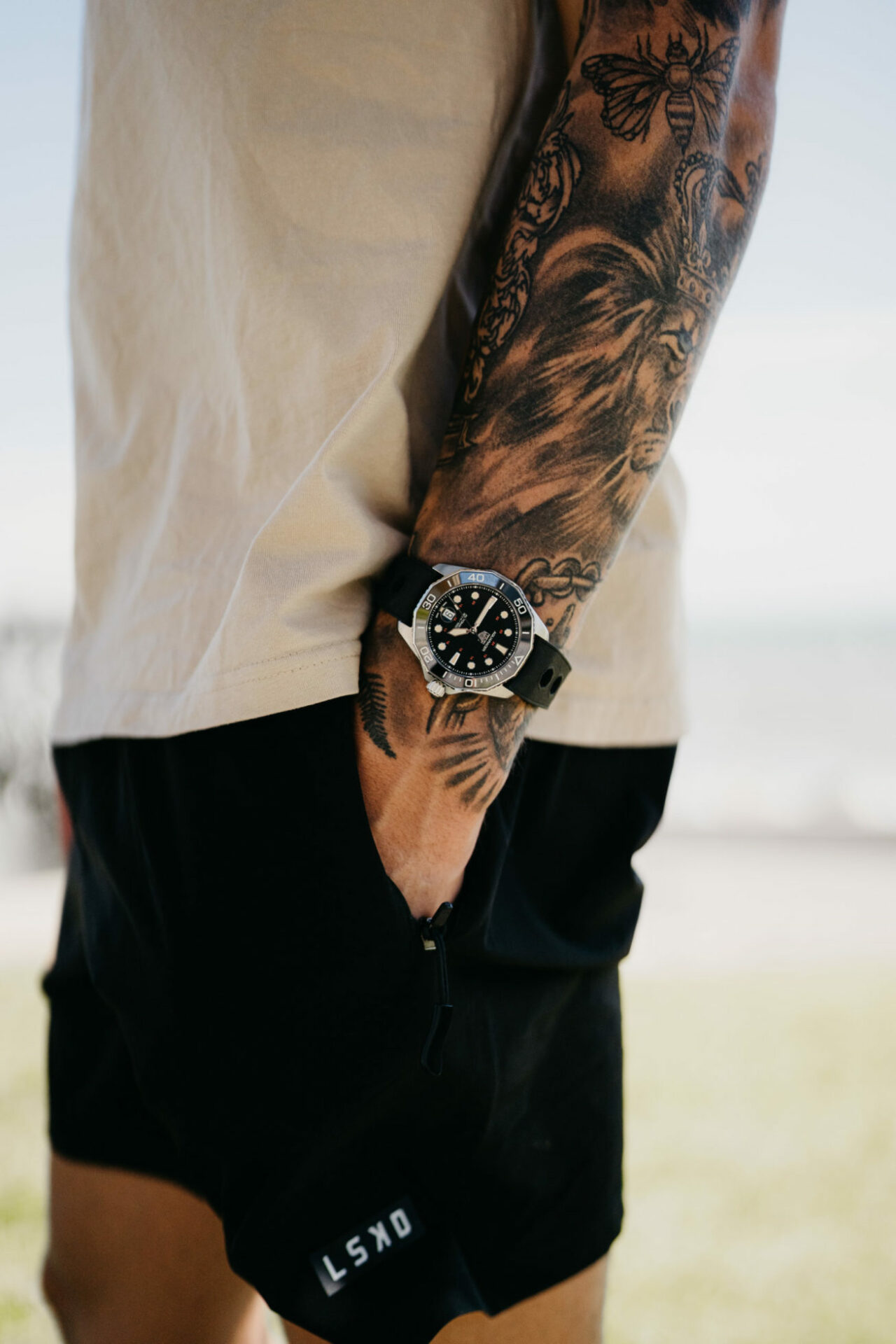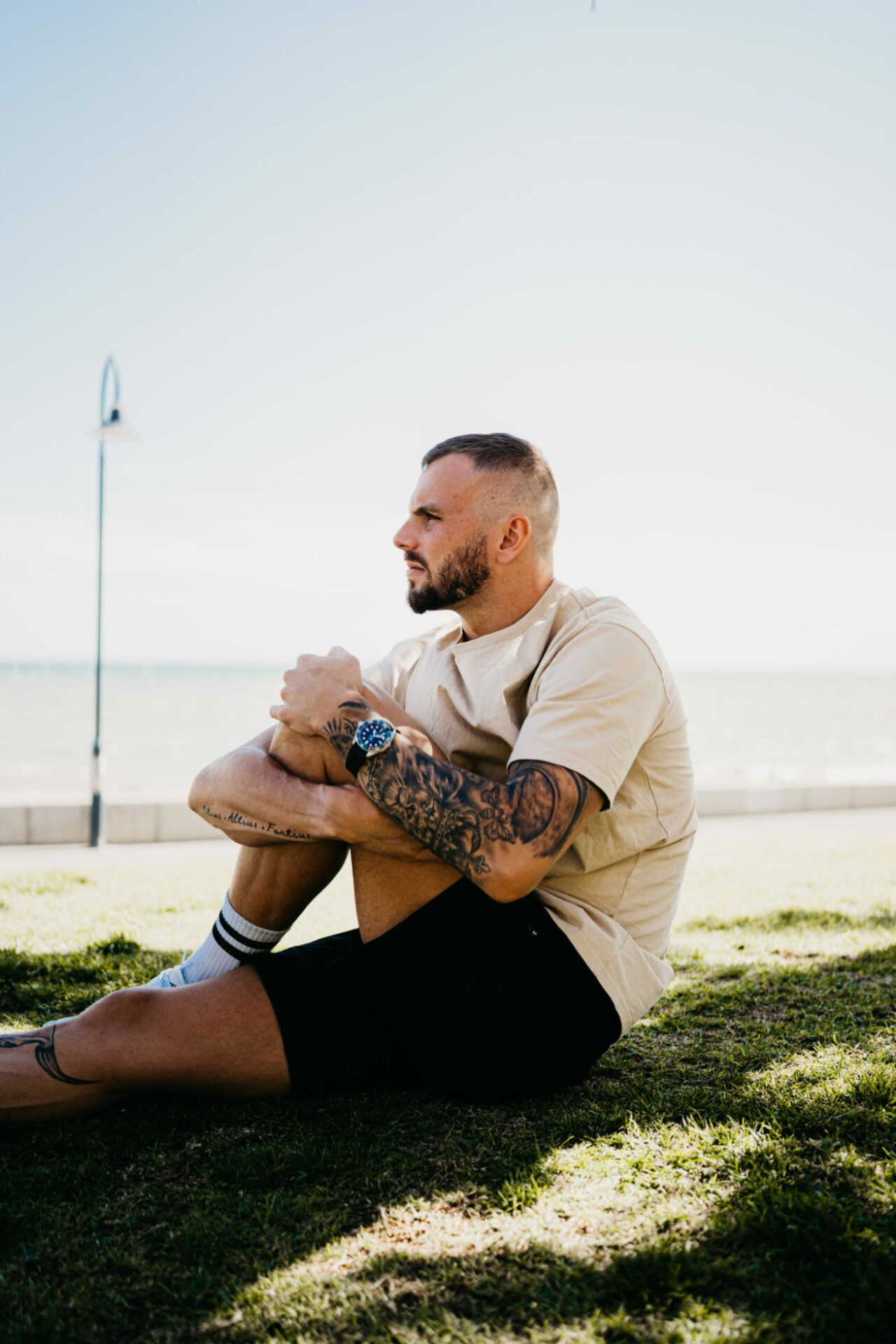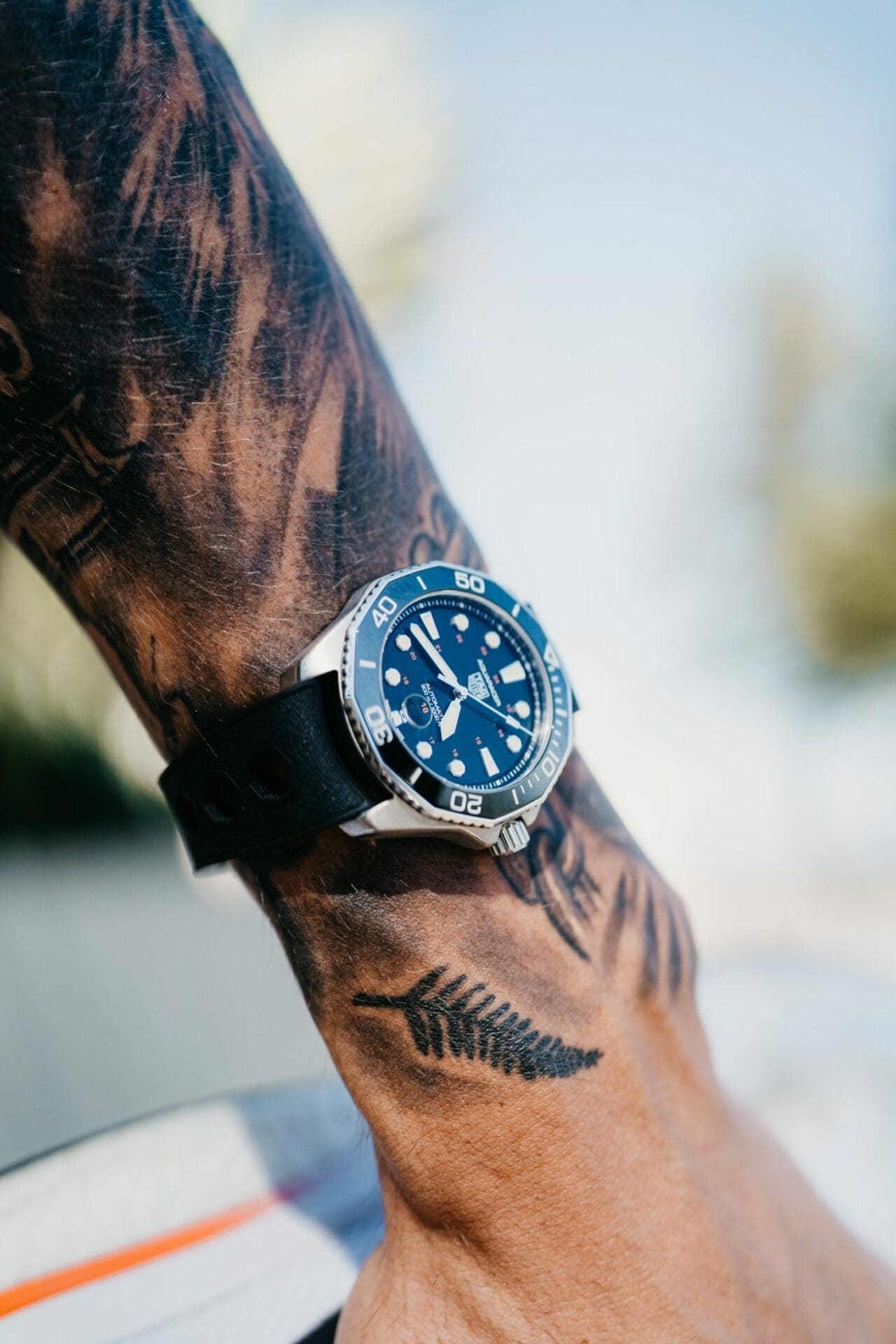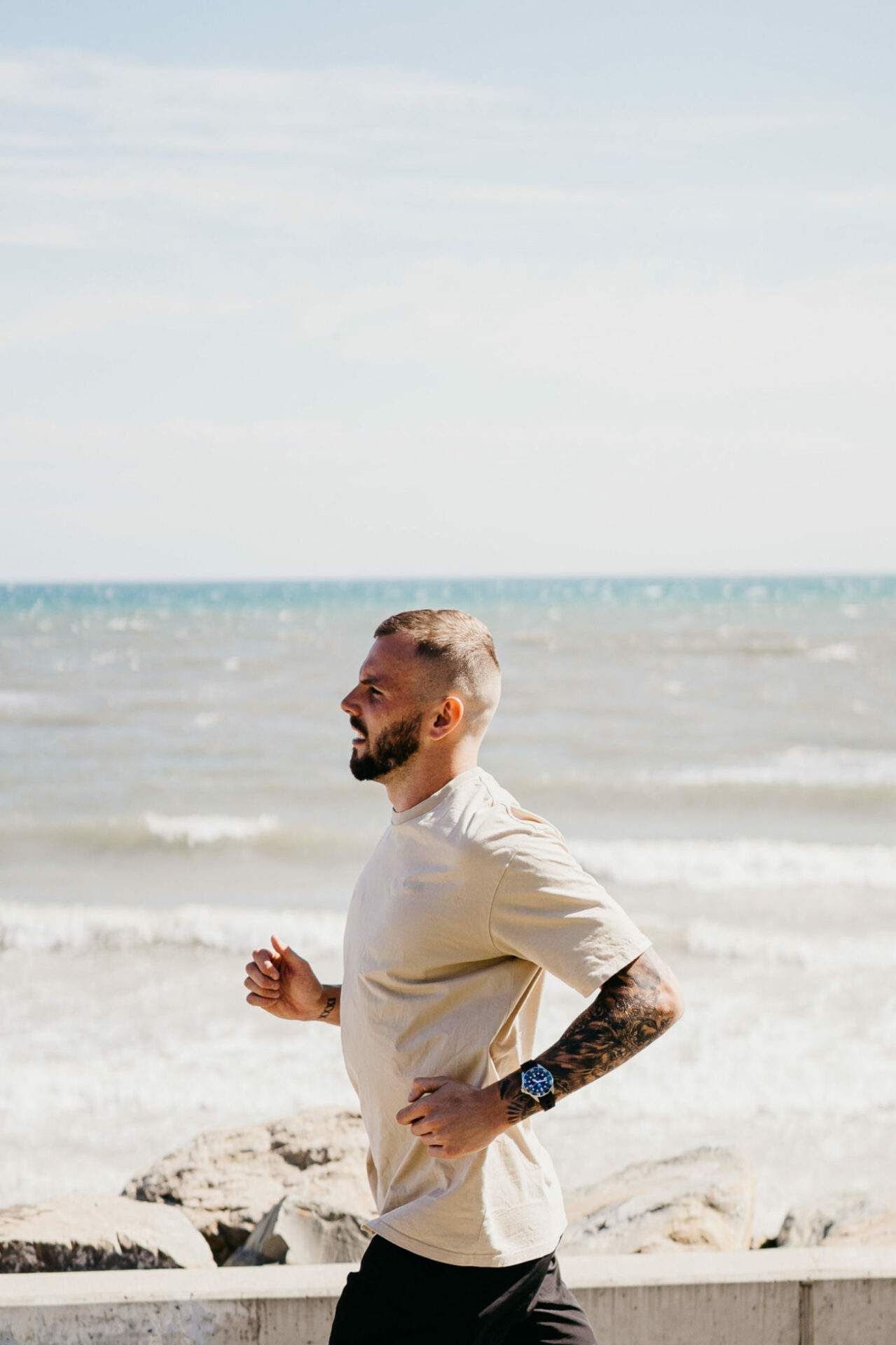Olympic swimmer Kyle Chalmers: “This silver medal means so much more than my gold”
Luke BenedictusA blink of the eye is usually judged to take one tenth of a second to complete. In the 100m freestyle, Kyle Chalmers missed out on Olympic gold by considerably less than that. Arch-rival Caeleb Dressel of the United States pipped the Aussie swimmer to the finish by just 0.06 seconds. After reviewing the race frame-by-frame, Kyle now acknowledges that he effectively lost before the two swimmers even hit the water. “Caeleb’s reaction time off the block was 0.06 of a second faster and that’s what he beat me by,” he says. “He reacted to the gun slightly better. He won from that.”
You’d image that defeat by such a fine margin would feel particularly cruel for Kyle. But the TAG Heuer ambassador insists that, in fact, he’s actually prouder of this silver medal that the gold he won in the 2016 Olympics.
“I look at this silver medal with so much pride and, honestly, it means so much more to me than the gold medal that I achieved in Rio. I went into Rio as an 18-year-old kid, who’d only been swimming properly for about a year. And this last five-year period, leading into Tokyo, I’ve had to sacrifice so much, overcome so much, just to get back there. There’s been so many times when I thought that I wouldn’t compete at the Olympic Games because of my injuries.”
“I had 12 cortisones in my left shoulder. I had three facet joint epidurals in my back. I had cortisone in my ankle. I had a cortisone in my right shoulder. I had three heart surgeries. I had shoulder surgery. I had PRP in my shoulder. Twice. The injuries that I’ve had to deal with over these last five years have been really challenging. And with injury comes mental challenges and emotional challenges. So for me, being able to compete in that Olympic final and swim a personal best time, after this year that I’ve had, I just am so stoked with that.”
Given how much success or failure in his sport hinges on infinitesimal fractions of a second, Kyle has taken to using his TAG Heuer Connected watch while grinding out laps in training. “My life revolves around timing,” he explains. “So, if I’m able to have a glance over when I’m swimming, it can spur me on to swim that little bit faster, because I have a fair idea, obviously, where I’m at, by checking the watch. If I have to swim a 50m freestyle in 25 seconds in training, and I’ve got 35m still to go and I can check where I’m at, based on the time on my watch, it makes my job a whole lot easier having the best technology available to me.”
Unfortunately, the dedication required to become one of the fastest swimmers on earth means that Kyle doesn’t get much of a chance to exploit the smartwatch’s other features.
“I don’t do a whole lot of exercise outside of the pool. I spend 30 or 40 hours a week in the pool. So I don’t get to play golf or run or cycle like I wish I could. Eventually, I think I will use my Connected watch in so many more ways, because there’s endless possibilities there. But I haven’t been able to tap into them as much as I’d have liked.”
As a result, Kyle’s go-to timepiece continues to be his trusty Aquaracer. “It’s my favourite watch that I wear. I’m able to dive into the pool and do a swimming session with it on, and then get out of the pool and can go to a formal event wearing the exact same watch. And with the new editions that have come, the Aquaracer is a watch that just keeps getting better.”
With Tokyo now in his rear-view mirror, Kyle is already back in training and looking ahead to the World Short Course championships at the end of the year and then the Commonwealth Games next year. But he admits to already having the Paris 2024 Olympics in his sights. “I’m more motivated and hungrier than I’ve ever been to succeed,” he insists.
The good news is that at just 23, Kyle is set to hit his physical swimming peak for the next Games. He may have lost out on gold by just 0.06 seconds, but time is still very much on his side.




